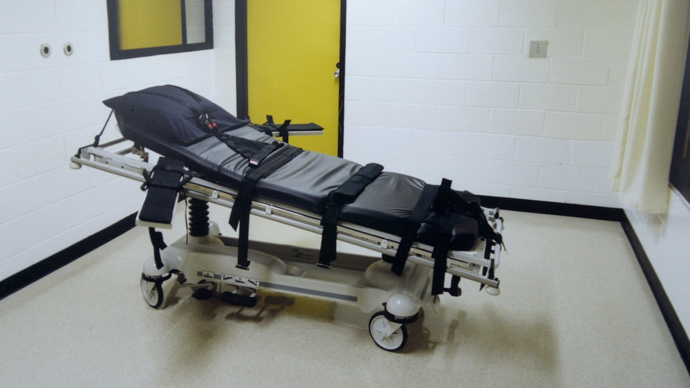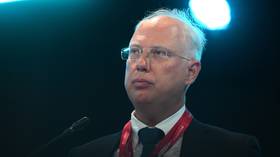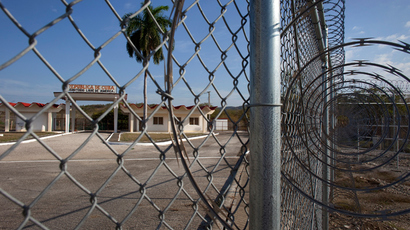‘Machinery of Death’: Gas chamber may be revived in Missouri

Gas chambers could be brought back to life in the state of Missouri, where the attorney general has indicated replacing lethal-injection with the long-forgotten and controversial means of execution before the former’s drug supply runs out.
"As each supply expires, the department's ability to carry out lawfully imposed capital sentences diminishes," Attorney General Chris Koster said in a motion filed with the court. "Unless the court changes its current course, the legislature will soon be compelled to fund statutorily-authorized alternative methods of execution to carry out lawful judgments."
Only two forms of execution are permitted by Missouri law: lethal injection and death by gas.
Missouri, like other US states with the death penalty, has been using a three-drug cocktail to execute inmates for decades. The drugs, however, are no longer available for executions after pharmaceutical companies across the world refused to sell their products to corrections departments for ethical reasons, and the European Commission introduced restrictions on the export of anesthetics to the US.
Last year Missouri announced plans to use propofol - the anesthetic blamed for Michael Jackson's death. The drug has not been used to execute prisoners in the US before, calling into question its potential viability for lethal injection.
In 2012, twenty-one Missouri death row inmates filed a lawsuit in the US District Court in Kansas City claiming the use of propofol would be a cruel punishment since it created "an unprecedented, substantial likelihood of foreseeable infliction of excruciating pain in the course of executing the plaintiffs".
In response to legal challenges, the Missouri Supreme Court has declined scheduling any more execution dates until the question is resolved.
Koster has filed new motions with the court, requesting that the state could go ahead with the executions of two death row inmates, adding that the department has only three quantities of propofol remaining, with the oldest quantity due to expire in October and the newest in 2015.
"The Missouri death penalty statute has
been unnecessarily entangled in the courts for over a
decade," Koster told The Guardian, adding
that "the premeditated murder of an innocent Missourian
is cruel and unusual punishment. The lawful implementation of the
death penalty, following a fair and reasoned jury trial, is
not."
A return to gas as a means of capital punishment would come at a cost, as Missouri no longer has such chambers installed in its penitentiaries.
Previous executions by gas took place at the Missouri State Penitentiary in Jefferson City. After prisoners were moved out of the prison a decade ago, it has become a landmark offering tours of the onetime functional gas chamber.
"Its [gas chamber] use has fallen into disrepute not least in the Western mind post World War Two. We see gas chambers as problematic for reasons that don't need spelling out," an attorney with the Death Penalty Litigation Center in Kansas City Joseph Luby said.
"The gas chamber has been dismantled in Missouri, so from a practical point of view I don't know how that could be done," chairwoman of the board for Missourians for Alternatives to the Death Penalty Rita Linhardt said. "I would think that would be a considerable cost and expense for the state to rebuild the machinery of death," she added.
From 1938 to 1965 Missouri used gas to execute 38 men and one woman. The state resumed administering the death penalty in 1989 after a 24-year break. Since then, 68 men - all convicted murderers - have been executed in the state, all by lethal injection, AP reports. After concerns were raised in the courts about the lethal injection process, Missouri has carried out two executions since 2005.
Back in 1995 the US court of appeals for the ninth circuit in California ruled the gas chamber unconstitutional.
Executive director of the Death Penalty Information Center Richard Dieter in Washington said other proposals have recently been made for states to use the gas chamber or the electric chair.
"It's unlikely that states would go back to these older methods, and if they did, I'm not sure they would be upheld in the courts”, Dieter noted.














